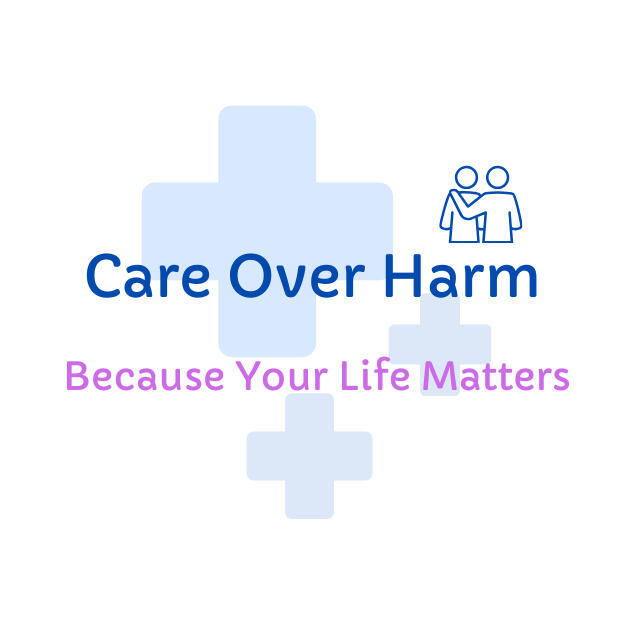
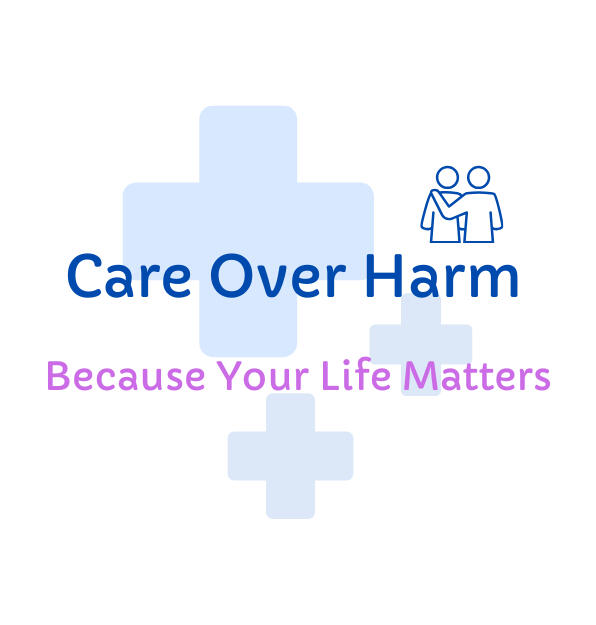
Get redress for you or your loved one's mistreatment by a medical practitioner.
Care Over Harm is a Patient Advocacy platform that facilitates easy access to litigation services for victims of medical malpractice and negligence.

Patient or Family Member of a Patient?
File a complaint and let's try and help you get justice!
Get redress for the pain, suffering and other adverse effects resulting from medical malpractie and negligence.
Not sure? Enter your e-mail below and we'll share updates on some of our work to help you get clued up before you make your decision.
Lawyer or Legal Practitioner?
Get access to vetted and funded medical malpractice cases.
Get On Board, Subscribe, keep your pipeline healthy, while helping to get the vulnerable some justice!
Keep up to date with all new developments such as complaint listings and funded case bidding opportunities.

Patient Zone
No Matter Who You Are, Your Life Matters!
Health Is Wealth!
Most people encounter a health crisis at some point in their lives whether it be their own health or a loved one. Dealing with the emotional labor of going through such a situation is hard enough even when dealing with health specialist and institutions that appear to have your best interests at heart in as far as performing their duty of care and taking their oath seriously.It becomes incredibly stressful when it becomes evident that the health practitioners on whom you place your entire hope for patient care display behavior that suggests they are not at all invested in helping your or your loved one overcome the health crisis.
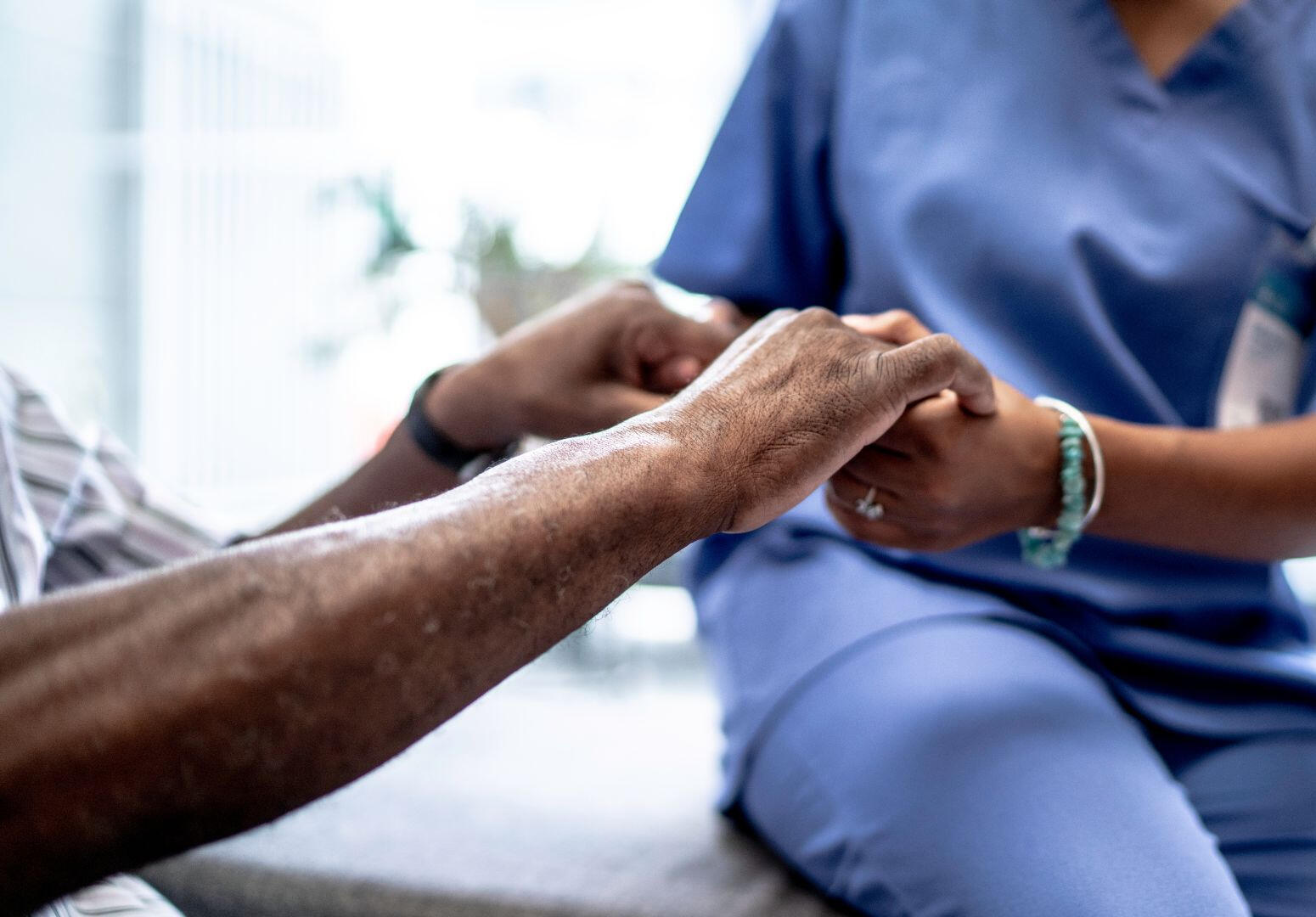

The challenge in most situations is that once the patient on their family realizes the health institution or practitioner they’ve trusted with care is not acting in their best interest, it is already too late.
The only avenue of redress in these types of situations is litigation, which most regular families typically cannot access or even afford, especially after having gone through a process of deploying any financial resources they have to tending to the care of their loved one.Care Over Harm is here to advocate for you, whether it be giving you support, giving your matter visibility, and where possible, helping you litigate against the medical practitioner or institution that has treated you unfairly!We are here to ensure advocate for accountability in medical practice, with the ultimate goal of ensuring that the behaviours of those health practitioners and institutions that treat patient care as an inconvenient element of deriving economic value do not lead to adverse outcomes for patients unlucky enough to end up in their care.
What Qualifies As Medical Malpractice in South Africa?
In South Africa, medical malpractice occurs when a healthcare professional (e.g., doctor, nurse, or hospital) fails to provide an acceptable standard of care, resulting in harm to a patient. Medical malpractice can take various forms, and common types include:


Misdiagnosis or Delayed Diagnosis
Misdiagnosis or delayed diagnosis occurs when a healthcare provider fails to correctly identify a medical condition in a timely manner, leading to incorrect treatment, disease progression, or preventable harm. In South Africa, such cases can form the basis of a medical malpractice claim if negligence is proven. Examples Include:
Failing to correctly diagnose a medical condition in a timely manner.
Misinterpreting test results (e.g., missing cancer, heart disease, or infections).
Delayed diagnosis leading to worsened conditions (e.g., stroke or sepsis).
These are the Common Conditions Misdiagnosed in South Africa:
Cancer (e.g., breast, lung, or cervical cancer misdiagnosed as infections).
Heart Attacks & Strokes (dismissed as stress or minor ailments).
Infections (Sepsis, Meningitis, TB) (leading to severe complications or death).
Autoimmune Disorders (e.g., lupus or rheumatoid arthritis mistaken for general fatigue).
Mental Health Conditions (e.g., depression or bipolar disorder misdiagnosed as stress).
Surgical Errors
Surgical errors refer to preventable mistakes made during surgery that cause harm to the patient. These can lead to severe injuries, complications, or even death. In South Africa, victims of surgical negligence can pursue medical malpractice claims for compensation.
Performing surgery on the wrong body part (wrong-site surgery).
Unnecessary or Incorrect Surgery - Performing surgery without proper justification.
Misinterpretation of diagnostic tests leading to unnecessary procedures.
Post-Surgical Negligence - Failure to monitor complications (e.g., bleeding, blood clots).
Inadequate follow-up care, leading to preventable harm.
Damaging nerves, organs, or blood vessels during surgery.
Anaesthesia errors (e.g., incorrect dosage leading to brain damage or death).
Retained Surgical Objects (RSIs) - Leaving sponges, gauze, clamps, or instruments inside the body, leading to infections, organ damage, or requiring follow-up surgery.

Medication Errors
Medication errors are preventable mistakes in the prescribing, dispensing, or administration of drugs that can cause patient harm.

These errors are a leading cause of medical malpractice claims in South Africa. Examples Include:
Prescribing the wrong medication or incorrect dosage - Wrong drug prescribed (e.g., insulin instead of a different injectable), Incorrect dosage (overdose or underdose), Failure to check allergies (e.g., penicillin given to an allergic patient).
Drug interactions ignored (e.g., prescribing a blood thinner with NSAIDs).
Administering drugs to which the patient is allergic - Wrong patient given medication, Wrong route (e.g., injecting a drug meant to be taken orally), Wrong time (missed or delayed doses), Incorrect IV rate (leading to overdose or complications).
Pharmacy errors (e.g., incorrect labelling or dispensing) - Wrong medication given (similar-sounding or look-alike drugs), Incorrect labelling (wrong instructions for use), Wrong dosage form (e.g., tablets instead of liquid for a child).
Monitoring Errors - Failure to check drug levels (e.g., warfarin toxicity) and not adjusting for kidney/liver disease (leading to drug buildup).
Communication Errors - Illegible handwriting on prescriptions, & Verbal miscommunication (e.g., "15 mg" heard as "50 mg").
Birth Injuries (Obstetric Malpractice)
Birth injuries caused by medical negligence during pregnancy, labor, or delivery can lead to lifelong disabilities for the baby or harm to the mother. In South Africa, such cases fall under obstetric malpractice, and affected families may claim compensation through medical negligence lawsuits. Examples Include:
Oxygen Deprivation (Birth Asphyxia) - Causes: Prolonged labor, umbilical cord issues, delayed C-section - Effects: Cerebral palsy, brain damage, developmental delays.
Cerebral Palsy (CP) from Medical Errors, Caused by failure to monitor fetal distress, improper use of delivery tools (forceps/vacuum), untreated infections.
Brachial Plexus Injuries (Erb’s Palsy), Caused by Excessive force during delivery (shoulder dystocia), with effects that include arm weakness or paralysis.
Maternal Injuries Due to Negligence - Uterine rupture from improper labor management, Severe tearing from incorrect episiotomy or forceps use, and Postpartum haemorrhage due to delayed treatment.
Fractures (Clavicle, Skull, or Arm) caused by rough handling during delivery.
Kernicterus (Severe Jaundice Complications), caused by failure to diagnose/treat neonatal jaundice. Effects: Brain damage, hearing loss, cerebral palsy.

Negligent Treatment or Lack of Informed Consent
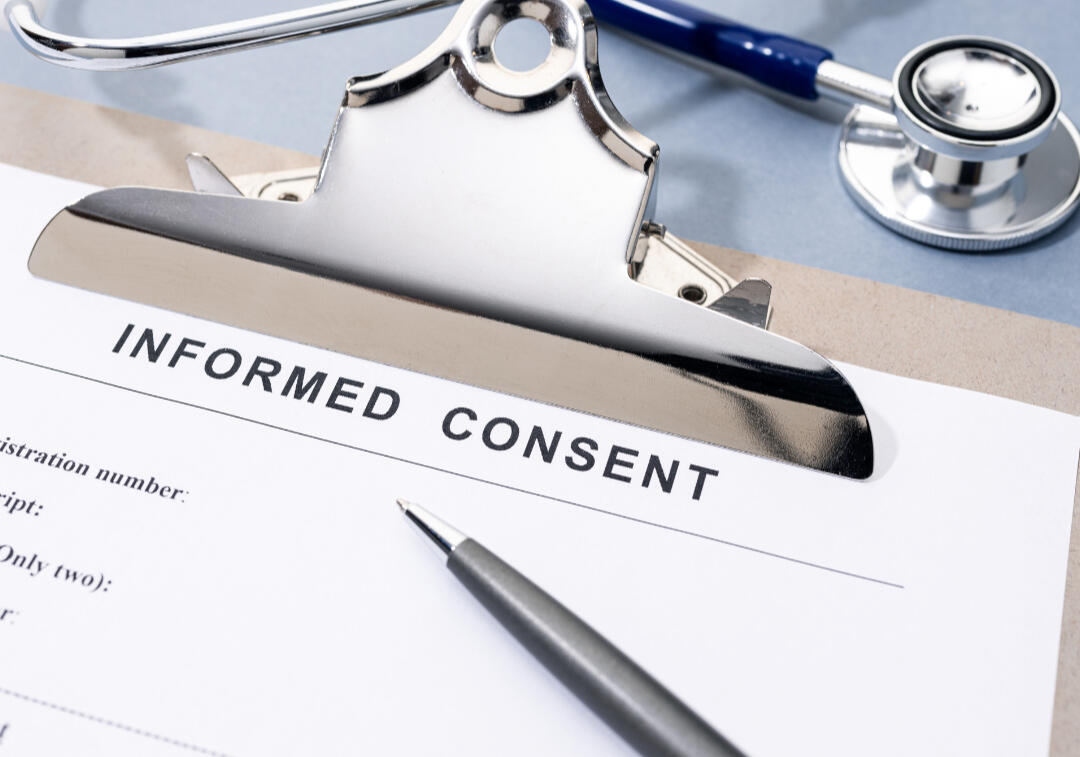
In South Africa, patients have the legal right to proper medical care and informed consent before any treatment. When healthcare providers fail in these duties, it can lead to medical malpractice claims. Examples Include:
Incorrect or Incomplete Treatment - Wrong surgical technique (e.g., botched cosmetic surgery), Prescribing outdated or ineffective medication.
Failure to Monitor or Follow Up - Discharging a patient too early, leading to complications, Not tracking a patient’s response to treatment (e.g., chemotherapy toxicity)
Inadequate Emergency Care - Delayed response to a patient in critical condition, Misreading symptoms (e.g., mistaking a heart attack for heartburn).
Poor Hygiene Leading to Infections - Hospital-acquired infections due to unsterilised equipment.
Hospital or Nursing Negligence
Hospital and nursing negligence occurs when healthcare institutions or staff fail to provide an acceptable standard of care, leading to patient harm. In South Africa, victims can pursue medical malpractice claims for compensation. Examples Include:
Hospital Negligence Includes:
Inadequate Staffing - Overworked nurses leading to errors, Delayed emergency responses.
Hospital-Acquired Infections (HAIs) - Sepsis from unsterilised equipment, Poor hygiene in ICUs or surgical wards.
Surgical & Anaesthesia Errors -
Wrong-site surgeries, retained instruments, Anaesthesia overdoses due to poor monitoring.
Mismanagement of Records - Lost test results leading to misdiagnosis, Mixing up patient files.
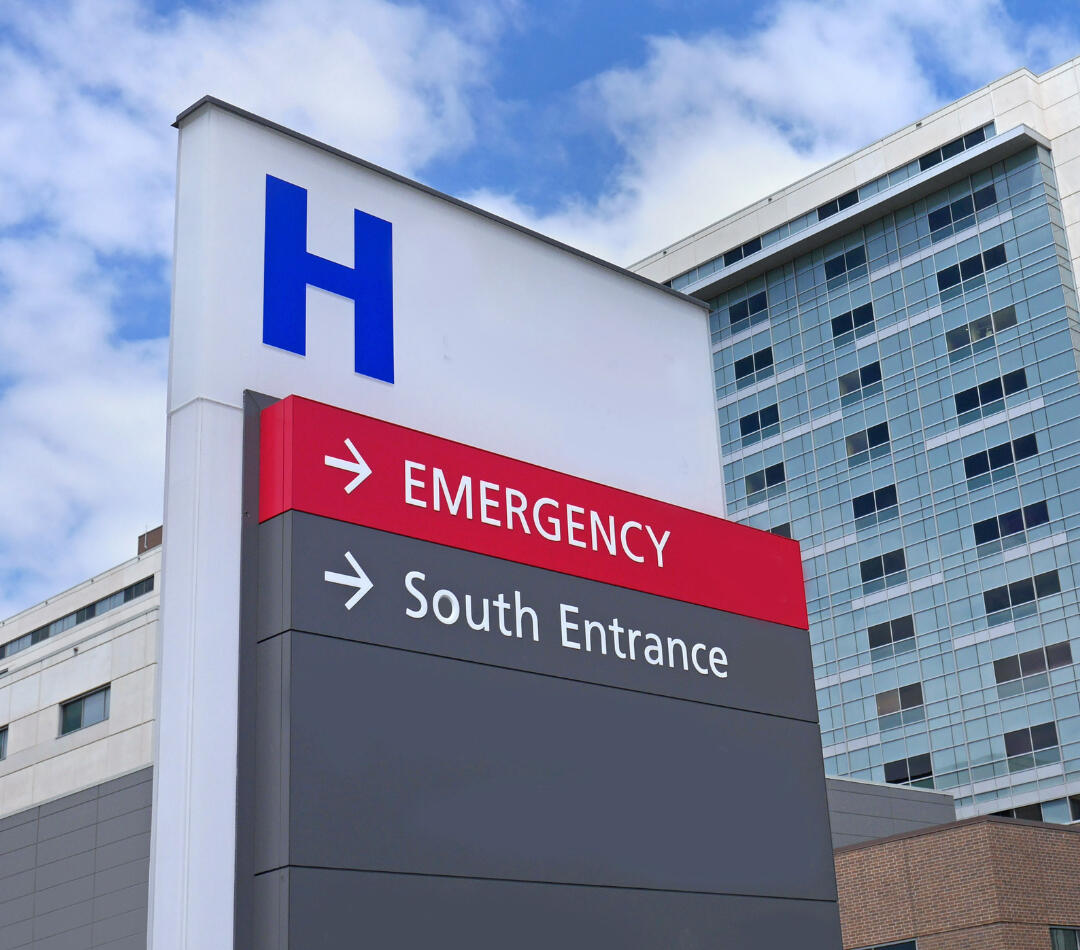
Nursing Negligence Includes:
Medication Errors - Wrong dosage, incorrect drug, or missed doses, Failure to check for allergies or drug interactions.
Poor Patient Monitoring - Ignoring vital signs (e.g., blood pressure drops, oxygen levels), Not recognising sepsis or post-surgical complications.
Neglect of Basic Care - Bedsores (pressure ulcers) due to lack of repositioning, Dehydration/malnutrition from inadequate attention.
Falls & Injuries - Failure to assist elderly or high-risk patients, Improper use of restraints leading to harm.

Failure to Diagnose Oral Diseases - Missed oral cancer (delayed biopsy or misdiagnosis), Undetected gum disease (leading to tooth loss or systemic infections), Ignoring TMJ (jaw joint) disorders (causing chronic pain).
Poor Hygiene & Sterilisation - Reusing unsterilised instruments (causing infections like HIV/Hepatitis B), Contaminated water lines (leading to bacterial infections).
Dental Malpractice
Dental malpractice occurs when a dentist, oral surgeon, or dental hygienist provides substandard care, causing harm to a patient. In South Africa, victims of dental negligence can pursue compensation claims under medical malpractice law. Examples Include:
Surgical & Extraction Errors - Wrong tooth extraction (removing a healthy tooth by mistake), Nerve damage (from improper wisdom tooth removal, leading to numbness or pain), Jaw fractures (due to excessive force during extraction), Failure to diagnose infections (leading to sepsis or abscesses).
Root Canal & Crown Negligence - Perforated roots (causing chronic pain or tooth loss), Incomplete root canal treatment (leading to reinfection), Poorly fitted crowns/bridges (causing bite problems or decay).
Cosmetic Dentistry Failures - Botched veneers or implants (misaligned, discoloured, or falling out), Excessive drilling (weakening healthy teeth for unnecessary procedures), Allergic reactions (to materials like nickel or acrylic).
Anaesthesia & Sedation Errors - Overdose of local anaesthesia (causing seizures or heart issues), Failure to monitor during sedation (leading to oxygen deprivation), Needle nerve injury (permanent lip/tongue numbness).
What Options Do You Have To Get Justice?

1. File a Medical Malpractice Lawsuit
For A Negligence Claim, You must prove the following:
The healthcare provider owed you a duty of care.
They breached that duty (acted below the medical standard).
The breach directly caused your injury.
You suffered damages (medical bills, lost wages, pain and suffering).
Statute of Limitations: Typically 1-3 years (varies by state), so act quickly.
2. Settlements - Many cases settle out of court through negotiations with insurers.
A lawyer can help assess whether a settlement offer is fair.
3. Hospital/Medical Board Complaints
File a complaint with the state medical board (can lead to disciplinary action but not financial compensation).
Report negligence to the hospital’s patient advocacy department.
4. Wrongful Death Claims - If malpractice resulted in death, family members may sue for wrongful death.
Key Steps To Take:
Get a Second Medical Opinion – Confirm if malpractice occurred.
Gather Evidence – Medical records, prescriptions, photos of injuries.
Consult a Medical Malpractice Lawyer – They can determine if you have a strong case.
File Before the Deadline – Each state has strict time limits.

Compensation You May Recover
Medical expenses (past and future)
Lost wages and reduced earning capacity
Pain and suffering
Punitive damages (in cases of extreme negligence)
Challenges in Malpractice Cases:
High Burden of Proof: Requires expert testimony.
Costly Litigation: Many lawyers work on contingency fees (paid only if you win).
Defense Tactics: Hospitals and insurers often fight claims aggressively.
Legal Corner
Build a solid pipeline, while helping the vulnerable get justice!
Connect your law firm with a steady stream of funded, pre-vetted cases—so you can focus on litigation and maximize returns.
Life Matters Offers:
Higher Case Quality - Funded cases go through underwriting—only strong claims make it through.
More Settlements, Less Drop-Off - Clients who aren’t desperate for fast cash can hold out for fairer settlements.
Pre-Built Intake - Cases come with medical records, damages outlines, even reports.
We Work With:
A network of litigation funders or pre-settlement funding partners
A referral pipeline of funded plaintiffs ready to retain counsel


Play A Part in holding Medical Practitioners & Institutions Accountable
Actions leading to avoidable adverse patient outcomes should be punished, by giving victims of such behaviours proportionate redress. Your law firm can be a big part of making that happen!
Families affected by medical malpractice often face a wide range of emotional, financial, legal, and logistical challenges.
They experience Trauma and Grief, where if malpractice leads to serious injury or death, families may experience intense grief, guilt, emotional strain, or even PTSD. There's also often a deep loss of trust in medical professionals or institutions, making future healthcare interactions stressful.
They also face Financial Burdens in the form of Medical Bills for Ongoing treatment, rehabilitation, or specialised care, which can be extremely expensive. If the injured person or a caregiver can no longer work, the household might lose a source of income.
These patients and their families deserve to get redress for the suffering, which is the goal of Life Matters, which we can achieve with your help, while you secure worthwhile economic benefits in the process.
Access Win Probability Assessed Cases
A pre-vetted, screened, or qualified case is a legal matter that has already undergone initial legal, factual, and financial review. These are not cold leads, they’re warm, ready to litigate cases.

Get Higher Quality Intake:
Legally Valid: The case meets key criteria in terms of jurisdiction, statute of limitations, damages, liability.
Merit-Based: Evaluated for chances of success, meaning less time spent on duds.
Supporting Docs in Place: Reports and medical records often included.
Access Venture Backed and Funded Cases
Get access to claims that have already secured financial backing:

Work on cases where:
The plaintiff has received an advance (pre-settlement funding) or
A litigation funder is backing the case for contingency litigation
The case has been vetted for merit, damages, and likely recovery
As a lawyer, this means:
No time wasted on weak cases
High chance of payout
Clients who can afford to see their case through

Get On-Board!
Get in-touch and let's get you on-board!
Complaint Access Subscription Terms and Conditions
1. Introduction & Agreement
These Terms and Conditions ("Terms") govern your subscription and use of the medical malpractice complaint database and related services ("the Service") provided by Care Over Harm ("Company," "we," "us," or "our"). By registering for, accessing, or using the Service, you ("Subscriber," "you," or "your") agree to be bound by these Terms. You represent and warrant that you are subscribing to the Service for professional, not personal, use.2. Subscription Plans & Fees
2.1. Subscription Tiers: We offer various subscription plans (e.g., Monthly, Annual, Tiered Access Levels). The specific features, access limits, and fees for your selected plan are detailed on our website and order form.
2.2. Payment: Subscription fees are payable in advance. You must provide a valid credit card or other approved payment method. By providing payment information, you authorize us to charge all fees automatically on the recurring basis of your subscription (e.g., monthly or annually).
2.3. Fee Changes: We reserve the right to change subscription fees upon thirty (30) days' notice. Your continued use of the Service after the fee change constitutes your agreement to the new rate.3. License & Use of Service
3.1. Grant of License: Subject to these Terms, we grant you a limited, non-exclusive, non-transferable, revocable license to access and use the Service for the purpose of your legal practice, specifically for researching and developing potential medical malpractice litigation.
3.2. Permitted Use: You may:
* Search, view, and download complaints and related documents.
* Use the documents as a reference, guide, or template for drafting your own legal pleadings.
3.3. Prohibited Use: You shall NOT:
* Resell, redistribute, sublicense, or otherwise make the Service or any documents available to any third party, including other law firms, without our express written consent.
* Use the Service for any automated data scraping, mining, or compilation for a commercial database.
* Represent that any complaint obtained through the Service is your own original work.
* Remove any copyright, trademark, or other proprietary notices from the documents.
* Use the Service in any way that violates applicable laws or rules of professional conduct.4. Intellectual Property
All content provided through the Service, including but not limited to the complaints, document summaries, database structure, and user interface, is the intellectual property of the Company or its licensors and is protected by copyright and other laws. Your subscription grants you a license to use this content as described herein but does not transfer any ownership rights.5. Disclaimer of Warranties & Limitation of Liability
5.1. "As Is" Service: The Service and all content are provided on an "AS IS" and "AS AVAILABLE" basis. We make no warranties, express or implied, regarding the Service, including but not limited to warranties of merchantability, fitness for a particular purpose, accuracy, completeness, or non-infringement.
5.2. No Legal Advice: The complaints and documents provided are for informational and educational purposes only. They do not constitute legal advice. You are solely responsible for independently verifying all legal and factual content, ensuring your pleadings comply with local court rules, and applying the law to your clients' specific facts.
5.3. Limitation of Liability: To the fullest extent permitted by law, the Company's total liability to you for any and all claims arising out of or relating to these Terms or the Service shall not exceed the total subscription fees paid by you in the six (6) months preceding the event giving rise to the claim. In no event shall the Company be liable for any indirect, incidental, special, consequential, or punitive damages, including lost profits or data, even if advised of the possibility of such damages.6. Refund Policy
6.1. General Policy: Due to the immediate and irrevocable nature of digital content access, we operate on a strict no-refund policy for subscription fees.
6.2. Explanation: Once you subscribe, you gain immediate access to our entire library of proprietary documents and research tools. As the core value of the Service is delivered upon access, we cannot recall the intellectual property or revoke the knowledge gained. Therefore, all sales are considered final.
6.3. Subscription Cancellation: You may cancel your subscription at any time. Cancellation will stop future recurring charges. You will retain access to the Service for the remainder of the pre-paid billing period. No full or partial refunds will be issued for the current billing period upon cancellation.
6.4. Service Interruption: If the Service experiences a catastrophic and prolonged failure (e.g., unavailable for more than 72 consecutive hours) through our fault, our sole obligation will be to extend your subscription for a period equal to the downtime. This does not constitute a refund.7. Account Termination
We may suspend or terminate your subscription immediately if you breach these Terms. Upon termination, your right to access the Service ceases immediately, and you must destroy any downloaded documents in your possession.8. Confidentiality & Data Security
We will maintain the confidentiality of your account information and use industry-standard measures to protect our systems. However, we cannot guarantee the security of data transmitted over the internet.9. Modifications to Terms
We reserve the right to modify these Terms at any time. We will provide notice of material changes via email or a prominent notice within the Service. Your continued use of the Service after the effective date of the revised Terms constitutes your acceptance of them.10. Governing Law & Dispute Resolution
These Terms shall be governed by the laws of the Republic of South Africa. Any dispute arising out of these Terms shall be resolved through final and binding arbitration in accordance with the rules of the applicable laws in the Republic of South Africa, and judgment upon the award may be entered in any court having jurisdiction.11. Contact Information
For questions about these Terms or the Service, please contact us at:
Care Over Harm - Life Matters
1 Wedgewood Road, Bryanston, Sandton, Johannesburg
E-mail - [email protected]
Find Your Ideal Case
Looking for a Case?
Here's a list of the complaints were currently have available. We update this database regularly so be sure to subscribe to our notifications and we'll keep you in the loop to make sure you're up to date with new cases and new developments.
File A Complaint

File Your Complaint Here, and let's see how far we can get in holding those responsible accountable. Even if we can't pursue the litigation route, we can at least give your matter visibility to make sure your voice is heard!
Contact Us
Do you have questions? Not sure how you should proceed? Drop us a note and we'll do our best to address your question or concern.











